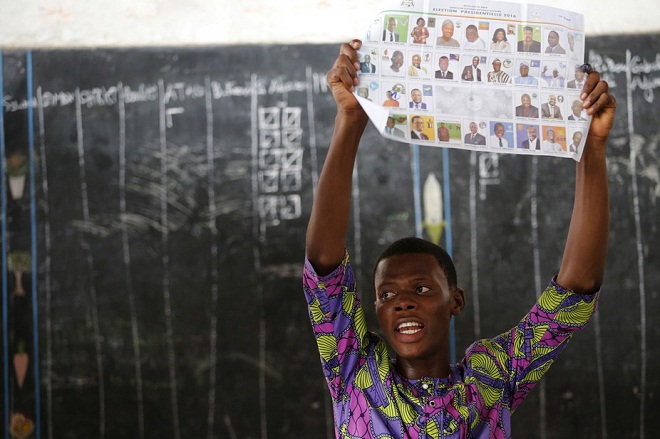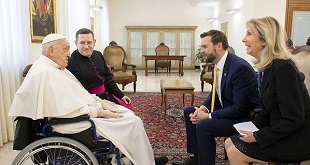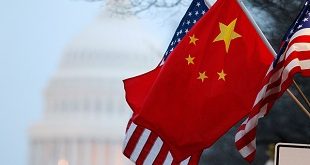Factors such as a history of war and violence, the curse of having natural resources, constitutional designs, ethnic divisions and regional neighbors contribute, writes Pippa Norris

Africans recently went to the polls in Benin, Cape Verde, the Republic of Congo, Niger and Zanzibar. The outcome was decidedly mixed.
In Congo, riot police used tear gas in the capital to disperse dozens of opposition supporters who alleged vote irregularities. But incumbent President Denis Sassou Nguesso won reelection after eliminating the two-term constitutional limit.
The opposition in Niger called for a boycott of the election, alleging fraud. Militants from al-Qaeda and Boko Haram staged attacks during the campaign. In the end, however, President Issoufou crushed his opponent with 93 percent of the vote.
On the island of Zanzibar in Tanzania, the opposition Civic United Front urged its supporters to boycott the election and violent protests broke out. USAID has now cancelled US$472 million in aid.
These mixed results deserve our attention because elections are a barometer of how well a democracy is functioning. The Electoral Integrity Project (EIP), which I direct, was founded four years ago to provide an independent evaluation of the quality of elections worldwide. The EIP’s results have been published in several books, including my own, Why Elections Fail.
The results of this year’s survey provide new and sometimes surprising insights into the failure – or success – of elections, especially in Africa, where democracy has a shallow history and its future is often in doubt.
Many ways to fail
People help elections fail in many ways. Presidents extend or overturn term limits. Laws ban opposition parties. Rival leaders are imprisoned. Voting rights are suppressed. Voting lists are inaccurate. Ruling parties dominate the airwaves. Free speech is muzzled. Thugs threaten voters. Money buys influence. Ballots are stuffed. Electoral officials favour the government. Dispute resolution mechanisms are broken.
Rigged elections are important because they can reinforce the legitimacy of corrupt and repressive leaders and solidify their hold on power.
March’s elections were not the worst recent ones on the African continent, by any means. Even more deeply flawed elections have been recently held in Ethiopia, Mozambique and Burundi.
In Burundi, for example, President Pierre Nkurunziza’s decision to run for a third term sparked civil unrest, a failed coup and conflict that threatened to ignite civil war. Contentious elections in each of these states threaten fragile prospects for stable democratic governance in Africa.
Yet some contests in Africa provide room for hope. For example, in Cape Verde’s parliamentary elections, also on March 20, the ruling party was defeated, the campaign saw little conflict and the opposition came to power after 15 years.
Benin’s presidential contest on the same day also saw a relatively peaceful government turnover where Prime Minister Lionel Zinsou, a former investment banker, conceded defeat to businessman Patrice Talon, the “king of cotton” in the second-round runoff.
Nor are these cases unique. Previous African elections which also worked relatively well, according to international observers and experts, have been held in Mauritius, South Africa, Lesotho and Namibia.
Wealth and poverty
Many factors contribute to these contrasts among African elections. These include a history of war and violence, the curse of having natural resources, constitutional designs, ethnic divisions and regional neighbors. But is poverty an important part of the answer?
Ever since sociologist Seymour Martin Lipset’s classic 1959 article titled “Some Social Requisites of Democracy: Economic Development and Political Legitimacy,” scholars have puzzled over the links between democracy and development.
The so-called “Lipset thesis” argues that democracies and, by extension, electoral integrity flourish best in industrialised and postindustrial societies with widespread literacy and education, an affluent professional middle class and a pluralistic range of civic associations serving as a buffer between citizens and the state.
The original claim by Lipset specified most simply that: “The more well-to-do a nation, the greater the chances that it will sustain democracy”.
This claim has been debated for more than a half-century. Many studies confirm the original correlation. Others suggest cases disputing the pattern.
For example, Singapore is one of the richest countries in the world, yet it has been ruled by Lee Kuan Yew’s People’s Action Party since 1959. At the same time, several low- to middle-income African countries such as Lesotho, Cape Verde, Botswana and Benin have solid democratic ratings, according to Freedom House, for more than two decades. Contests in Nigeria last year also provide hope for progress. India is also cited as an important outlier.
One of the most influential arguments about wealth and democracy was advanced by political scientists Adam Przeworski and Fernando Limongi in their influential 1997 article “Modernisation: Theories and Facts.” This study compared 135 autocratic and democratic regime states from 1950-1990.
 The Independent Uganda: You get the Truth we Pay the Price
The Independent Uganda: You get the Truth we Pay the Price



